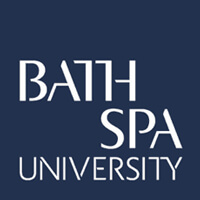fees waived
Wildlife Conservation, BSc (Hons), with industry placement
Bath Spa University, United Kingdom
Subject ranking
UK / CUG 2024 67th
UK / Times 2025 76th
UK / CUG 2025 104th
Costs
food & rentS$18.7K / year
Entry requirements
Scholarships
2 available
Unlimited quantity
Unlimited quantity
Unlimited quantity
Limited quantity
Information
Code
Code
Intakes
Website (External)
Programmes
Information
Duration
2029
Course summary
Explore conservation biology, ecology and human-wildlife interaction with a creative interdisciplinary approach, and help develop ways to protect the natural world.
- Explore the biology of animals, plants and ecosystems in the UK and around the world.
- Learn in the field, laboratory, classroom and using new technology.
- Engage in creative interdisciplinary approaches to help tackle one of the world’s greatest challenges.
Modules
In year one, you'll study the fundamental concepts of biology, ecology, conservation and natural history. You'll learn key scientific, analytic, practical fieldwork and communication skills that you'll use throughout your degree and beyond.Your second year introduces more applied content, and includes key research skills, a work placement opportunity, animal behaviour, ecology, environmental management, and an independent project. You'll learn practical techniques, such as Geographical Information Systems (GIS), both on campus and on a residential field course, and you will carry out small group projects. There will also be opportunities for multidisciplinary study including fields such as environmental philosophy, creative arts, geotechnologies and education.Your third year is a Professional Placement Year. In your final year, you'll learn how to put what you have learned into practice, with a focus on more specific skills needed for the workplace. The year will start with a choice between an international and UK field course which will bring together many of the things you have learned in the first two years. You'll conduct your own dissertation research project and explore how you can work with society to create change through a choice of optional modules. Opportunities for multidisciplinary study will continue, allowing you to take novel approaches to conservation tailored to your interests, for example, environmental politics, marine biology, behavioural psychology and wildlife filmmaking.
Assessment method
The assessments will include written coursework, practical and field work, production of digital materials, creation of artistic work, presentations and some traditional exams. Coursework will typically include practical files, laboratory/field reports, essays and technical reports, as well as reflective blogs, filmed pieces, and resource creation.Many assessments will allow you to choose the precise focus and tailor your studies around your own particular interests.
In year one, you'll study the fundamental concepts of biology, ecology, conservation and natural history. You'll learn key scientific, analytic, practical fieldwork and communication skills that you'll use throughout your degree and beyond. Your second year introduces more applied content, and includes key research skills, a work placement opportunity, animal behaviour, ecology, environmental management, and an independent project. You'll learn practical techniques, such as Geographical Information Systems (GIS), both on campus and on a residential field course, and you will carry out small group projects. There will also be opportunities for multidisciplinary study including fields such as environmental philosophy, creative arts, geotechnologies and education. Your third year is a Professional Placement Year. In your final year, you'll learn how to put what you have learned into practice, with a focus on more specific skills needed for the workplace. The year will start with a choice between an international and UK field course which will bring together many of the things you have learned in the first two years. You'll conduct your own dissertation research project and explore how you can work with society to create change through a choice of optional modules. Opportunities for multidisciplinary study will continue, allowing you to take novel approaches to conservation tailored to your interests, for example, environmental politics, marine biology, behavioural psychology and wildlife filmmaking.
A local representative of Bath Spa University in Singapore is available online to assist you with enquiries about this course.

